During the question-and-answer session with Minister of Finance Nguyen Van Thang on the morning of June 19, National Assembly deputies paid special attention to solutions to promote socio-economic development, ensure a minimum growth target of 8%, renew old growth drivers and promote new growth drivers.
Delegate Khang Thi Mao ( Yen Bai delegation) said that the Government has reported to the National Assembly to issue Resolution 192 setting a GDP growth target of 8% or more, creating a foundation for double-digit growth in the 2026-2030 period. The delegate asked Minister of Finance Nguyen Van Thang about solutions for state-owned enterprises to contribute to this growth target.
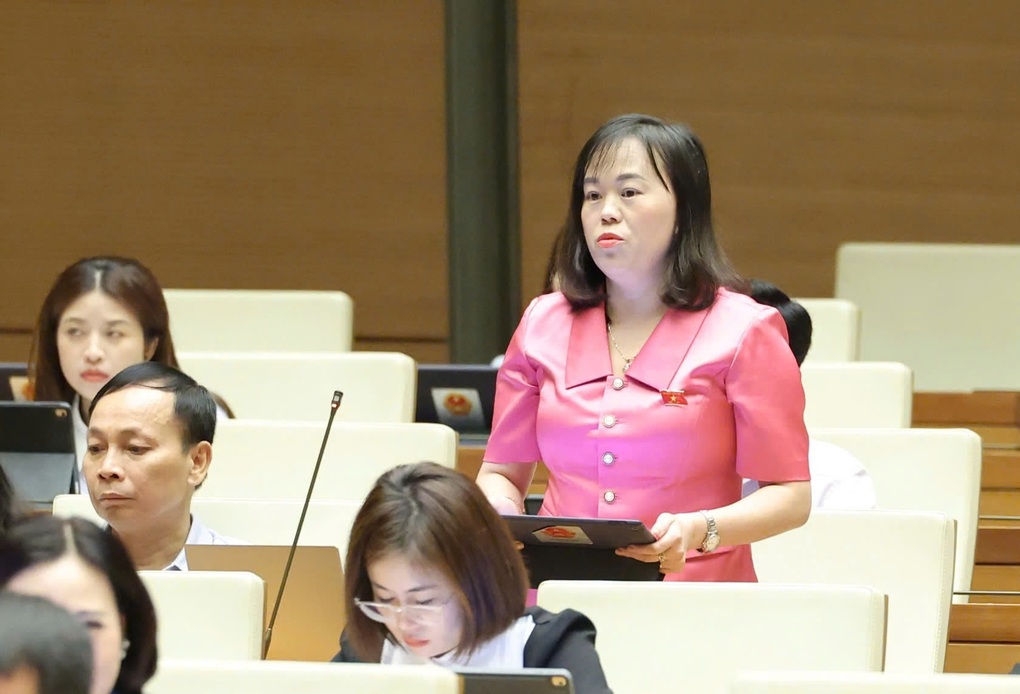
Delegate Khang Thi Mao (Photo: Quang Phuc).
The Minister said that with its ownership of 18 enterprises and State-owned corporations, the Ministry of Finance has recently issued growth targets. First, the Ministry has required enterprises, corporations and general corporations to adjust their business plans to set a minimum growth target of 8% or higher.
Second, the Ministry of Finance should promote reforms and strongly amend institutions related to enterprises. At the same time, enterprises must proactively change their management thinking.
Currently, the State has created the best conditions, only managing the capital contribution, not managing the enterprise. Therefore, enterprises must proactively make the most of resources, especially capital, to do business most effectively, focusing on focused investments.
Third, the State, through its representatives, monitors enterprises and provides timely support to overcome difficulties in the process of implementing set goals and plans.
Referring to the business activities of State-owned enterprises, National Assembly delegate Ta Van Ha ( Quang Nam delegation) pointed out that the 2023 report data showed that 134 State-owned enterprises lost up to VND 115,270 billion. He asked the Minister to clarify the basis and feasibility of assigning growth targets to State-owned enterprises.
The Minister of Finance said that the agency has requested that when the State has opened up the mechanism, enterprises are almost as proactive as private enterprises. Therefore, setting the target of 8% increase is for enterprises to accompany the Party, the State and the people.
The businesses that the Ministry of Finance is managing are all doing relatively well. The Minister said that the Ministry of Finance has reviewed and found that it is entirely possible to successfully implement the 8% growth business plan. At the same time, businesses must also cut costs and pay more attention to business plans.
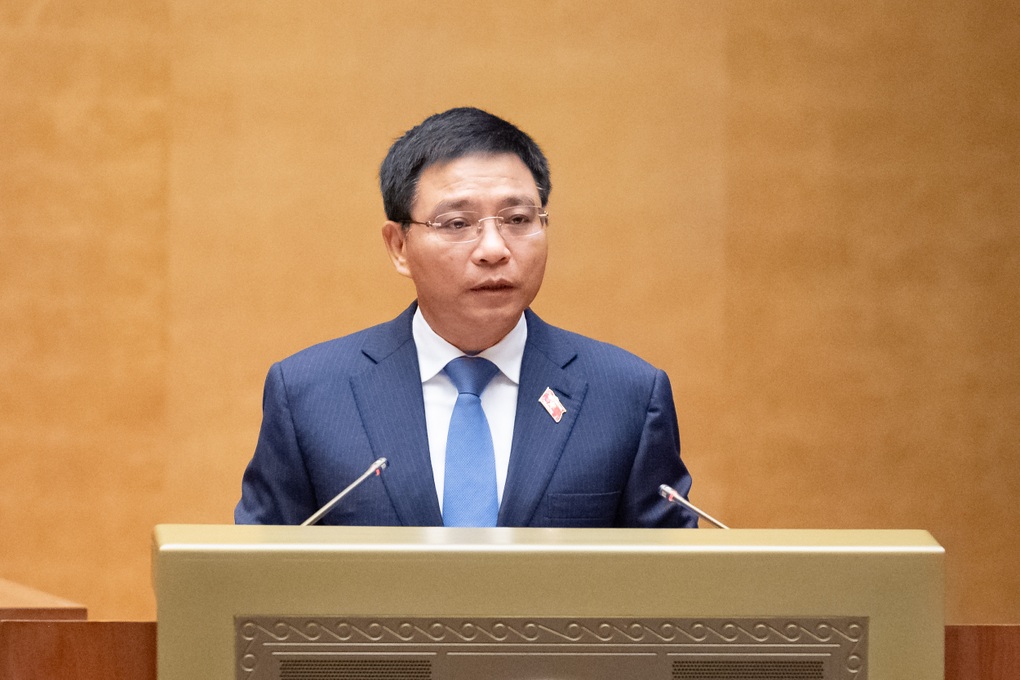
Minister of Finance Nguyen Van Thang (Photo: Pham Thang).
“When we set the target of 8%, we must determine the total contribution of enterprises. Some enterprises may not meet the target, but others will exceed it. We also have an objective assessment mechanism. If any level is not met, we will be warned, and if any level is not met, we will be exempted from responsibility. Enterprises are also very open and transparent,” the Minister of Finance emphasized.
In his questioning session, National Assembly delegate Duong Tan Quan (Ba Ria - Vung Tau delegation) mentioned the issue of governance mechanisms of state-owned enterprises.
Specifically, Resolution No. 12 clearly pointed out the limitations of State-owned enterprises, which are that the State-owned enterprise governance mechanism is slow to innovate, ineffective, inconsistent with international practices and standards, and transparency is still limited. Delegates asked about solutions to innovate State-owned enterprise governance to conform to international practices.
Regarding this issue, Minister Nguyen Van Thang assessed that in recent years, State-owned enterprises have also had many changes and progresses, and their management and administration capacity has been significantly improved.
However, the Minister also frankly assessed that these enterprises have not yet thoroughly applied corporate governance principles according to international practices. This is due to many reasons such as legal regulations, awareness, thinking of leaders, and traditional thinking.
Recently, the Ministry of Finance advised the National Assembly to amend the law, to untie all the problems that state-owned enterprises are facing. When completed, state-owned enterprises will have all the conditions to stand up and apply international corporate governance.
Regarding the legal corridor, the State has created favorable conditions. Enterprises need to have a unified understanding of State enterprise governance as a set of mechanisms and institutions of State enterprises with owners, shareholders, investors, employees, customers, etc.
State-owned enterprises must improve their responsibility and professionalism in performing the function of representing owners' equity at enterprises.
In addition, enterprises must enhance the initiative of the board of directors, board of members, chairman, etc. and need to be transparent and public with information, expand international cooperation and take advantage of scientific and technological advances, innovation, digital transformation in management and administration, associated with innovation in recruitment, training and development of staff.
Source: https://dantri.com.vn/kinh-doanh/dai-bieu-quoc-hoi-doanh-nghiep-nha-nuoc-lam-gi-de-dong-gop-tang-truong-8-20250619120946623.htm



![[Photo] Prime Minister Pham Minh Chinh launched a peak emulation campaign to achieve achievements in celebration of the 14th National Party Congress](https://vphoto.vietnam.vn/thumb/1200x675/vietnam/resource/IMAGE/2025/10/5/8869ec5cdbc740f58fbf2ae73f065076)





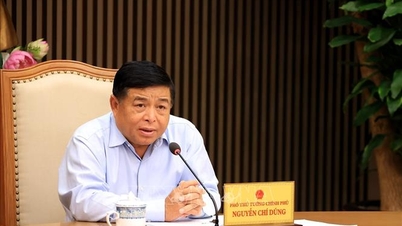

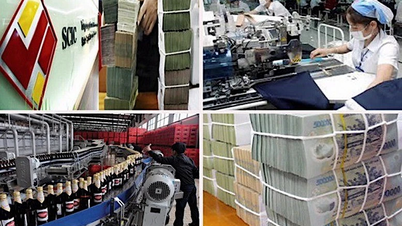




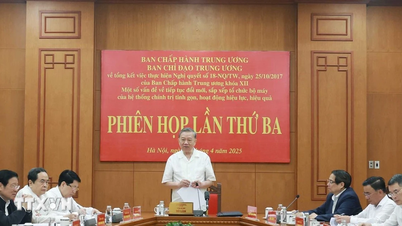
















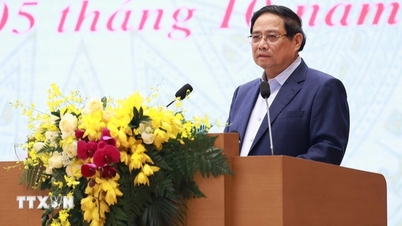



![[Photo] Bustling Mid-Autumn Festival at the Museum of Ethnology](https://vphoto.vietnam.vn/thumb/1200x675/vietnam/resource/IMAGE/2025/10/4/da8d5927734d4ca58e3eced14bc435a3)






















![[VIDEO] Summary of Petrovietnam's 50th Anniversary Ceremony](https://vphoto.vietnam.vn/thumb/402x226/vietnam/resource/IMAGE/2025/10/4/abe133bdb8114793a16d4fe3e5bd0f12)

![[VIDEO] GENERAL SECRETARY TO LAM AWARDS PETROVIETNAM 8 GOLDEN WORDS: "PIONEER - EXCELLENT - SUSTAINABLE - GLOBAL"](https://vphoto.vietnam.vn/thumb/402x226/vietnam/resource/IMAGE/2025/7/23/c2fdb48863e846cfa9fb8e6ea9cf44e7)





















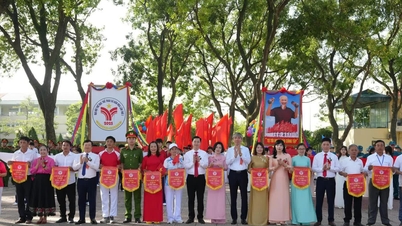












Comment (0)